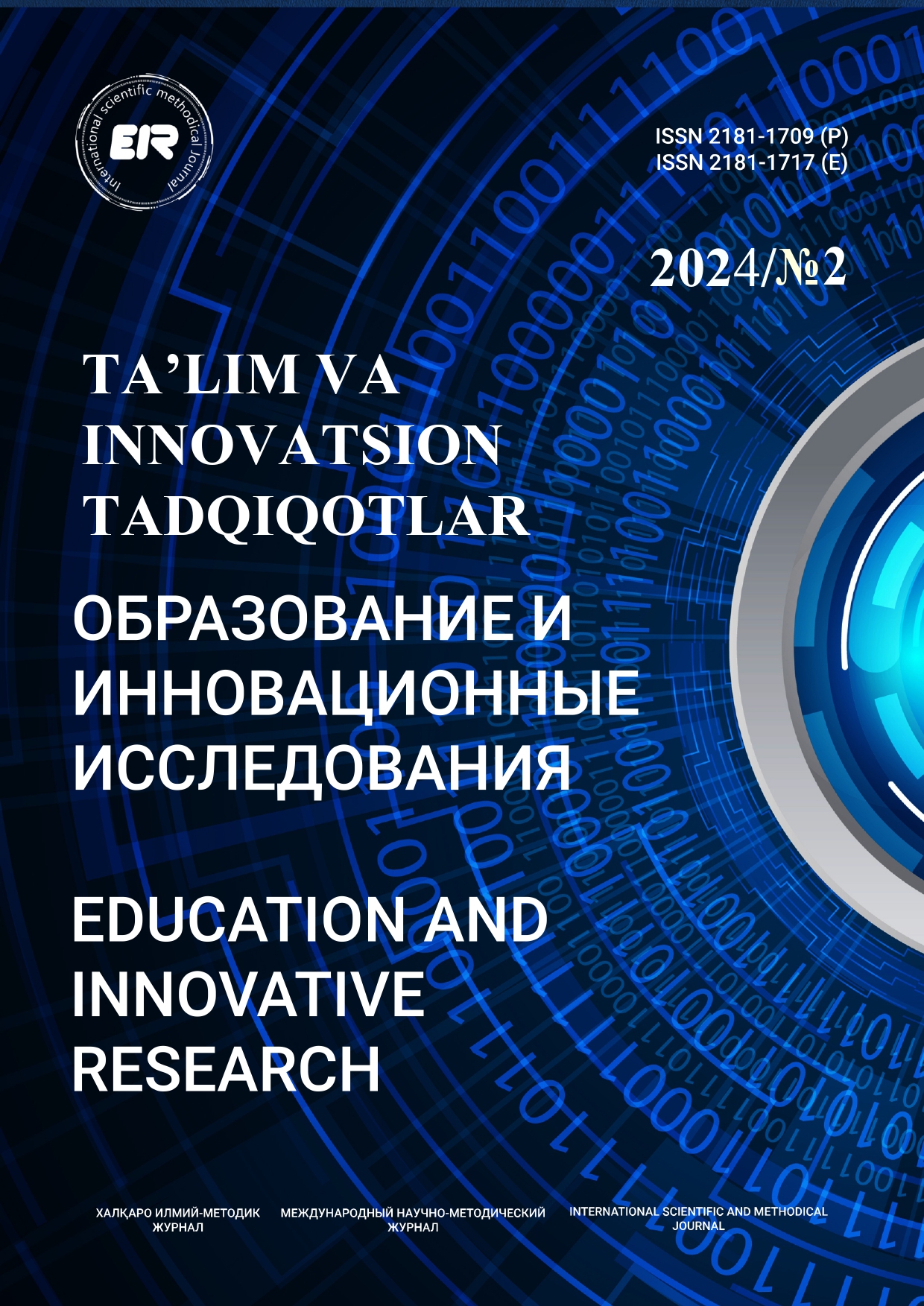MODEL OF A MODERN READING LITERACY LESSON IN PRIMARY SCHOOL
Ruzieva Mairam Amriloevna, teacher at Bukhara State Pedagogical Institute, Faculty of Preschool and Primary, Department of Primary Education
Keywords:
functional literacy, skill, critical thinking, literary text, story, plot, skill, lesson.Abstract
The article outlines the content and methodological support for the preparation of future teachers of literature for the formation of students’ reading literacy in the lessons of reading literacy.
Reading grades are being considered and materials are needed that the student will read. In the assessment, such materials (text or a number of texts related to a specific task) should contain enough information so that the managing reader is involved in the process of understanding the text and gives an answer to the question posed in the task. Although it is obvious that there are many different types of texts and any assessment should include a wide range of them, there has never been a single ideal categorization of the entire variety of types of texts that readers encounter. The developed exercises and tasks are aimed at the formation of reading literacy among schoolchildren, which implies the ability to interact with the text at a deeper, interpretative level; critically evaluate the information received, put forward their own hypotheses based on what they read, apply it in real life situations. This is a group of skills based on the identification, perception, comprehension, awareness, adequate understanding of semantic information, its analysis; the ability to read and write; the ability to express one’s thoughts in accordance with linguistic norms; the ability to transform information; the ability to identify information provided in the text in an implicit form, to prove the reliability of arguments, supporting their own conclusions with facts from the text and implicit evidence, to make assumptions about a new understanding of the text after its analysis and selection of counterarguments.
References
Алмешова, Ж. К. научно - педагогические основы формирования профессиональной компетентности будущих учителей / Ж. К. Алмешова. - Текст: непосильный / / Молодой ученый. — 2014. — № 4.1 (63.1). — С. 31-33. - URL: https://moluch.ru/archive/63/10009 / (дата обращения: 01.12.2023).
Рузиева, М. А., & Соколова, Е. О. (2023). Современные подходы к анализу художественных произведений на уроках литературного чтения. Conferencea, 49-54.
Рузиева, М. А., & Соколова, Е. О. (2023, February). Сущность понятия «коммуникативные универсальные учебные действия». In E Conference Zone (pp. 36-40).
Рузиева, М. А. (2023). Качества навыка чтения: быстрое, осознанное, выразительное чтение. IQRO, 2(2), 96-99.
Косимов, Ф. М., & Рузиева, М. А. (2021). Решение среднее арифметических задач. In Научно-практическая конференция.
Рузиева, М. А., & Соколова, Е. О. (2023). Значение международных оценочных программ (PIRLS, TIMSS, PISA, TALIS) в развитии грамотности учащихся. Pedagogs jurnali, 1(1), 522-522.
Г.С. Голошумова тенденции развития вариативного образования в современном социуме ISSN 1991-5497. Мир науки, культуры, образования. № 3 (46) 2014





